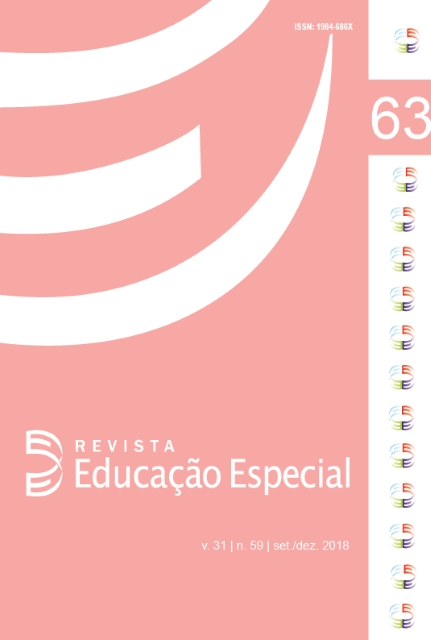Mediated and collaborative construction of learning assessment tools in inclusive school
DOI:
https://doi.org/10.5902/1984686X33101Keywords:
School inclusion, Learning assessment, Collaboration.Abstract
This article aims to discuss the power of the mediated construction of learning assessment tools among teachers of the common teaching and the Specialized Educational Assistance - SEA for the school inclusion. It is argued that the assessment has been one of the gaps in the schooling practices of public-targeted pupils of special education in the common school, generated in large part by the persistence of certain forms of thought and organization of school culture (Prosser 1999, Dussel, 2014), which deepen the split between the work of the ESA teacher and that of the common teaching classroom. The assessment practices in ESA and in the common classroom have been exiled from one another and, in this context, the student is also exiled and becomes invisible. This problem led to a collaborative research work for the collective and mediated construction of the Collaborative Plan for Educational Service for a student with intellectual disability in the 6th year of elementary school. The investigation had the participation of seven teachers from the final years of elementary school - Portuguese Language, Geography, History, Mathematics, Art, Science, Physical Education - and two from special education, who together developed study dynamics and concept definition, differentiated procedures and tools for pedagogical assessment of the student with disabilities enrolled in their classes. The results evidenced shared experiences of discussion about the way of learning of students with intellectual disabilities and the collective conception of an instrument of planning and assessment designed for their effective participation and success in the elementary school.
Downloads
Downloads
Published
How to Cite
Issue
Section
License
Declaration of originality
We declare that all articles present in the journal Revista Educação Especial (UFSM) are originals and were not submitted for publishing on any other publication, as a whole or a fraction. We also declare that, after being published by Revista Educação Especial (UFSM), a paper will not be submitted to another journal within two years. After this time, our journal transfers the publishing rights to the authors, with a permit granted by the Editorial Council.
We also acknowledge that the originals’ submission to Revista Educação Especial (UFSM) implies on a transference of copyright for physical and digital publishing to the journal. In case of noncompliance, the violator will receive sanctions and penalties predicted by the Brazilian Copyright Protection Law (n. 9610, dated 19/02/98).







